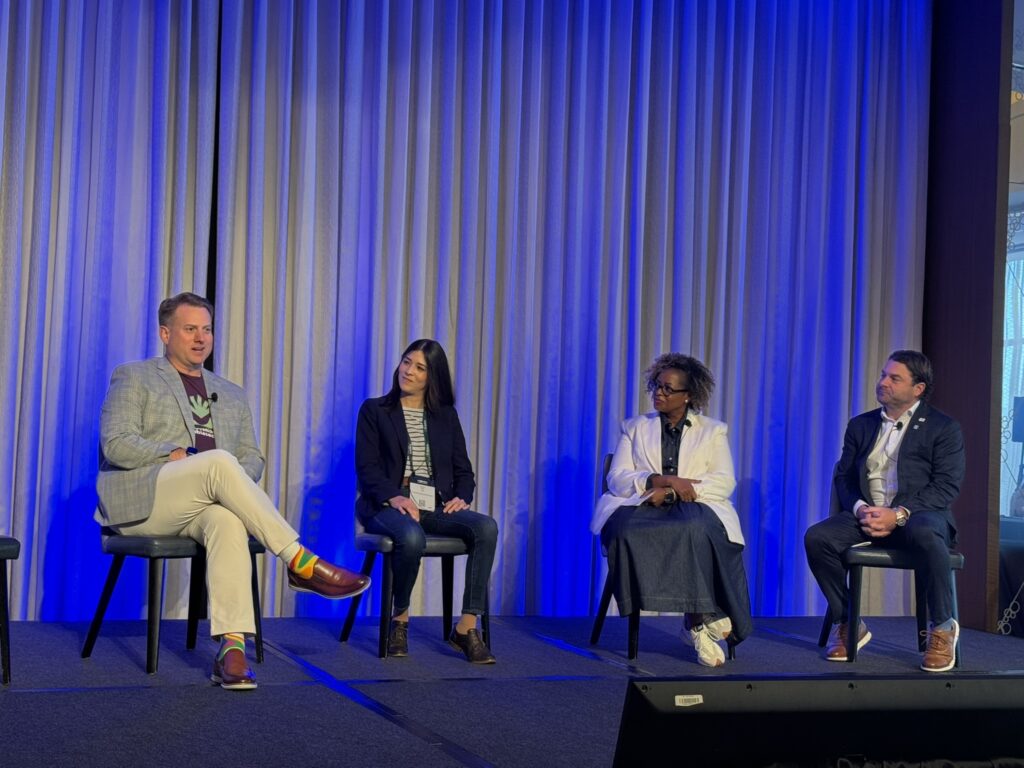
Expana’s Women in Food & Agriculture event in Chicago brought together industry leaders to discuss diversity, inclusion, and culture within the sector. Today (September 22) the event’s delegates attended a panel on belonging by design explored building teams and cultures that endure.
Panelists included moderator Denitresse Ferrell, Founder & CEO of Culture Refinery; Christopher Bylone van Sandwyk, Global Belonging Strategist at Innovation Unbiased and former Global Head of Belonging, Inclusion, Diversity, Equity, & Accessibility at Krispy Kreme; Annie Ryu, CEO of The Jackfruit Company and Jack & Annie’s; Rosalind Fox, former John Deere executive; and Andy Rash, US Monogastric Director at Alltech.
Key themes centered on what belonging looks like in the workplace and how it translates into measurable outcomes.
Bylone described belonging as the difference between knowing you belong and feeling that you belong, stressing that authentic self-expression must be valued in daily interactions. “Belonging is about the outcome of your authentic self is being valued,” he said, while Ryu added that “the real you knowing that you are able to fit and interact in real every day discussions.”
Ryu emphasized universal belonging, noting that “everybody needs to belong regardless of their differences.” Ferrell echoed this by saying that belonging reduces the person’s mental energy spent on fitting in.
The panel also tackled inclusive culture myths.
Fox argued that DEI work requires unlearning simplistic assumptions: “Leaders tend to think we’re all the same. Look at people as who they are and not what sub group defines them. We have to unlearn that.”
Bylone warned that freedom of speech protects employees less than it protects individuals from government overreach, urging clear conduct codes within organizations. Rash added that the best compliment for a leader is when the team believes it achieved results itself, and Annie Ryu noted that diverse perspectives lead to better decisions.
Situational leadership was another focus.
Ryu highlighted the need for leaders to be authentic and adaptable as people respond to leadership styles. Fox stressed the importance of psychological safety to enable difficult conversations and transparency, while Bylone pointed out that many people policies are reactive; policies should rather be designed with clear intent and mapped out to lead to practical outcomes.
Briefly discussing the topic of recognition, Fox advocated for recognizing teams alongside individuals and highlighting those who embody the company’s core values in everyday work. Personal connection was another thread: Bylone described sharing moments of joy at the start of meetings to shift office conversations toward positivity, while Rash encouraged healthy, respectful debate to reveal individuals’ true potential.
The panel also touched on leadership dynamics beyond formal titles. The panellists argued that leadership is not confined to people with a title, they urged for all voices to be heard regardless of rank in a company.

